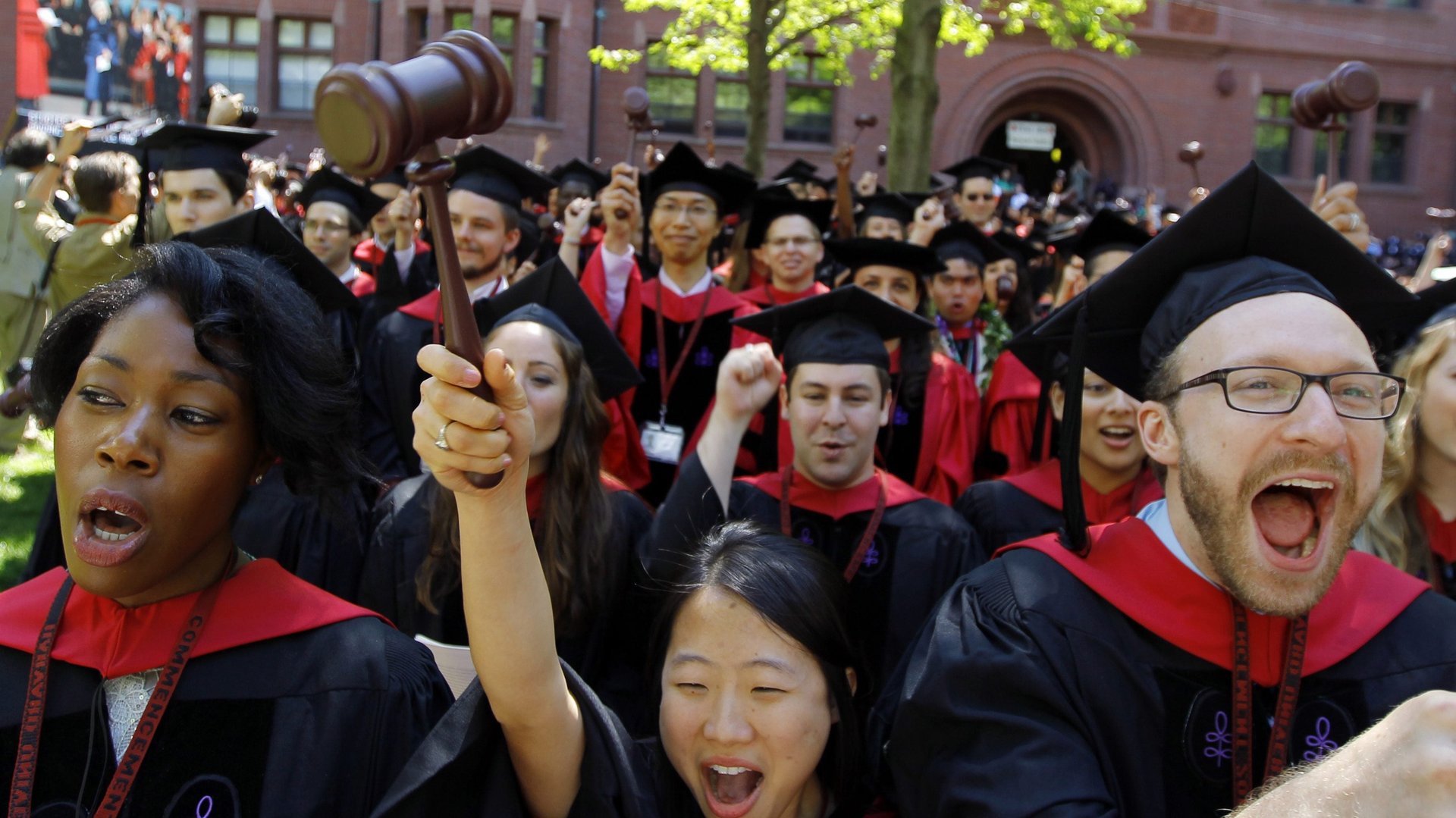Law schools are letting down their students and society—here are three steps they can take to fix things
Another fall, another crop of students arriving in law schools, buying the same casebooks, ready to be taught the same way how to reach the same conclusions for the same exams.


Another fall, another crop of students arriving in law schools, buying the same casebooks, ready to be taught the same way how to reach the same conclusions for the same exams.
Law schools in the US today have become depressingly single-purpose: training members of a closed profession and failing to equip them to tackle the full breadth of problems facing economies and societies that are undergoing extensive transformations.
Law schools are letting down their students. They’re requiring anyone who wants to do any type of legal work, even the pro-forma and routine, to enroll in three years of graduate school and take on an average debt of $140,000, all the while facing dwindling job prospects.
This is bad news for students. But it is even worse news for the rest of us. Today’s law schools are graduating hordes of would-be lawyers who are not prepared to respond to, or innovate new solutions for, the pressing legal and regulatory needs of citizens and businesses alike.
The result is an insulated and out-of-touch conveyor-belt profession that has become too complex, too expensive, and too disconnected from the realities people and businesses face. Law is increasingly not getting the job done, let alone addressing the long-term crisis in access to justice and modern challenges such as automation, artificial intelligence, cybersecurity, climate change, and safety and fairness in global supply chains.
Today’s law schools are increasingly chasing their own tails, with the holy grail still being a coveted job in a big law firm that serves large corporations. Meanwhile, roughly 90% of Americans dealing with legal matters do so without legal help. And as I have found in my research, even big businesses are unhappy with what is available to them. In a 2011 survey, 70% of global executives reported that law and regulation were the greatest causes of complexity in their businesses.
Conventional legal education, modeled on a system invented at Harvard in 1870, teaches students how to “think like a lawyer”, and how to spot potential legal issues. Practical training happens on the job. During the heyday of the industrial nation-state economy, this worked pretty well.
But while the American Bar Association (ABA) rightly pushed to raise the quality and uniformity of legal education at the beginning of the 20th century, it has entered the 21st with an effective monopoly on law school accreditation and professional regulation. This has put a stranglehold on the ability of law to adapt to a vastly transformed world.
What we need now is greater diversity, new methods, and better engagement with the real world. To get the broad and deep innovation in law that we need, we have to fix legal education.
Step one is to shift from the top-down approach that the ABA now takes in overseeing how people are admitted, taught, and tested in law schools to an approach that emphasizes testing what people can actually do before they enter practice.
The profession should focus on its remit of ensuring legal services providers are useful, competent and honest, and leave it up to universities, colleges, and other training organizations to find the best way to produce people who meet those standards.
A shift like this can open up multiple paths to practice—and is a route already being pursued in the United Kingdom. People who want a career in law can choose from nine different professional paths, three of which lead to a license to provide full legal services and none of which requires a law degree. In fact, people can qualify to practice some types of law without even going to university.
By reducing the influence of the ABA in determining what a “law school” is and how to qualify a legal professional, access to legal education would become more democratic. This in turn would attract a cohort diverse enough to come up with the new ideas we need in law.
Step two is to shift from an emphasis on book knowledge to practical wisdom in establishing the requirements for licensure.
At the highest levels, law is a learned profession—and it should remain intellectually demanding and informed by philosophy, economics, history, political science, and more. But that is not the appropriate benchmark against which to establish the minimum thresholds needed to ensure widespread consumer and commercial confidence.
Law would do well to follow the model in medicine: test law students early in their educational careers to make sure they have acquired basic legal knowledge. Then focus ultimate qualification on candidates’ ability to actually listen to solve real legal problems encountered by real clients.
Step three is to move away from the idea that one-size fits all when it comes to legal training and competence.
As the UK has found, law degrees and licensing are not necessary to achieve adequate competence and consumer protection for all forms of legal help.
Research shows that licensed providers of basic services provide just as good if not higher quality. A recent secret shopper study found that wills drafted by licensed solicitors were just as likely (25%) to have errors in them as those drafted by specialist will-writing companies that are not required to hold a license.
The reform of legal education could bring benefits in the form of economic growth, access to justice, and ongoing legal innovation to meet the challenges of the 21st century, as well as reducing the burden of debt on the next generation of legal professionals. And this may even turn around the declining number of students choosing to go into law.
Legal education matters. Not just for law students, but for all of us.